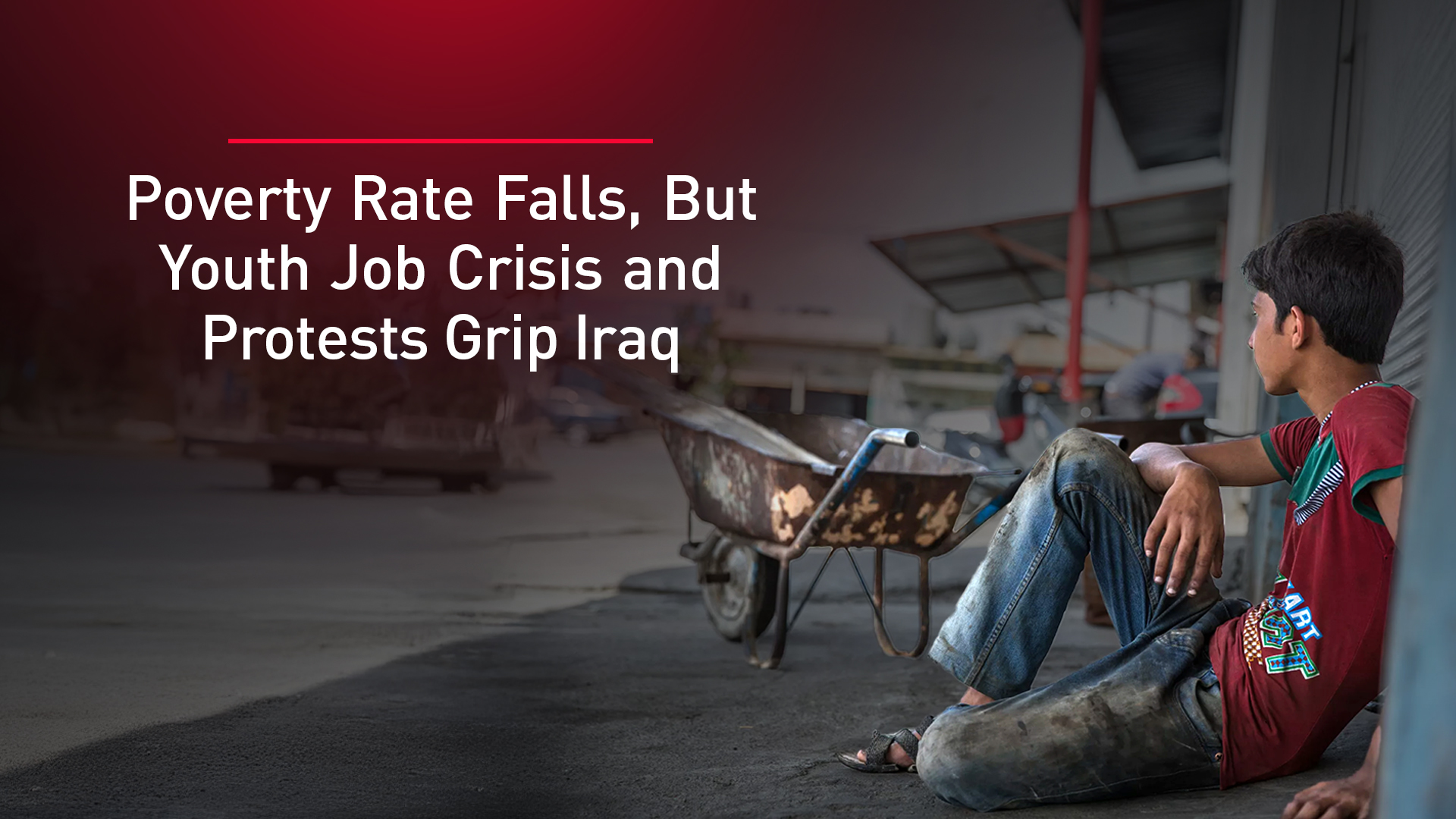Baghdad Announces Drop in Poverty Rate Amid Protests
Iraq’s Ministry of Planning announced the poverty rate has fallen to 10.8%, even as the country faces an unknown unemployment rate and widespread protests over the lack of basic services.

ERBIL (Kurdistan24) – Iraq’s Federal Ministry of Planning has announced a significant decrease in the national poverty rate, reporting a drop to 10.8 percent, even as the country grapples with an unknown unemployment rate and widespread citizen protests in its southern and central provinces over the lack of basic services.
In a press conference held on Wednesday, Iraqi Minister of Planning Muhammad Ali Tamim detailed the new statistics. "The poverty rate in all areas of Iraq, including the Kurdistan Region, has decreased," he stated. "According to our statistics from 2018 to 2024, the rate has dropped from 11.4% to 10.8%."
The minister also highlighted a longer-term trend, noting in another part of his remarks that "the poverty rate in Iraq has decreased by more than 50% since 2011, and we are working to reduce it further."
Minister Tamim made a point to thank the Kurdistan Regional Government (KRG) and the Kurdistan Region Statistics Office for their coordination and cooperation. He said their collaboration in conducting surveys and exchanging information has been crucial for efforts to develop and improve the situation of citizens across Iraq.
The Kurdistan Regional Government’s (KRG) Ministry of Planning, in turn, issued a formal protest a few hours after the federal government's launch of a major national poverty report, stating that its key institutions were excluded from the final process and highlighting significant statistical discrepancies that were masked by the national average presented in Baghdad.
The sharp rebuke came immediately after Iraq’s Federal Ministry of Planning, in partnership with the United Nations, announced the results of the "Iraq Multidimensional Poverty Index (MPI) analytical report" at a press conference on Wednesday.
In a direct statement, the KRG’s Ministry of Planning asserted that the pivotal report "was organized without the knowledge of the Kurdistan Region's Ministry of Planning and the Kurdistan Region Statistics Office." The ministry argued that the report should have been a joint effort to incorporate the KRG's views and that it should have received a final draft for approval before the public announcement. "From the outset, this report and its details should have been worked on jointly," the statement read.
Central to the KRG’s protest is the presentation of the poverty data.
While the federal report announced a national Multidimensional Poverty Index (MPI) of 10.8%, the KRG ministry pointed to a significant disparity in the underlying material poverty figures from the same survey data. The KRG statement specified that the material poverty rate is 19.3% in federal Iraq, while it is less than half that in the Kurdistan Region, at 8.6%.
According to the planning minister, determining the country's poverty rate is a vital tool for governance. He stated that it "has a major impact on improving the situation of citizens and identifying problems." He also mentioned that establishing this official rate allows the government to better plan how to serve its citizens and to more thoroughly investigate the issues they face.
However, despite the positive economic indicators highlighted in the report, they were presented against a backdrop of complex and persistent challenges.
The announcement comes as the Iraqi Ministry of Labor has acknowledged that the exact unemployment rate in the country is not known. The ministry attributes this uncertainty to the large number of young people graduating from universities and institutes annually, combined with very rapid population growth.
Meanwhile, the on-the-ground reality for many citizens contrasts with the ministry’s report.
For several weeks, residents in the southern and central provinces of Iraq have been holding protests against the persistent lack of essential services, such as clean water and reliable electricity. During these demonstrations, which have at times resulted in tensions and clashes, citizens have called on the federal government to resolve their pressing issues.
The report was updated at 03:37 PM local Erbil Time. Adding statment by KRG's Ministry of Planning.